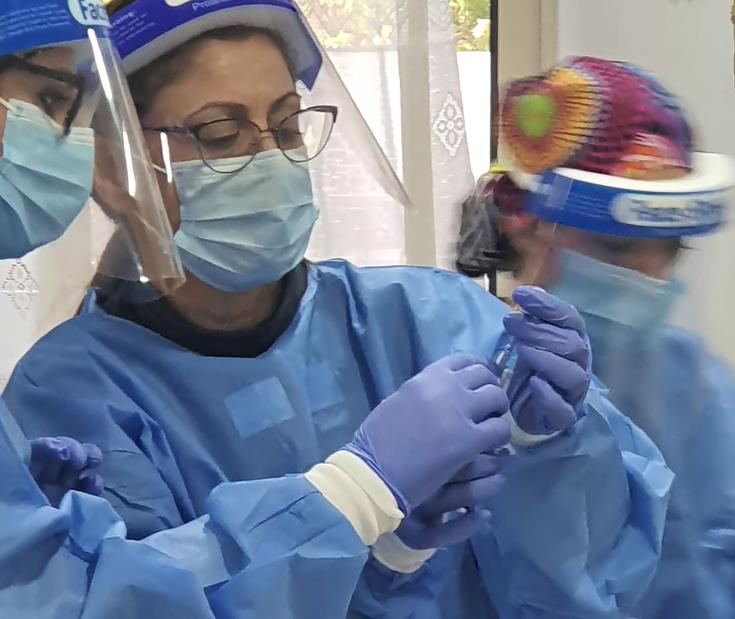Cyprus could opt to follow other EU states in ordering Russia and Chinese-made COVID-19 vaccines to speed up its rollout, but that requires a political decision, said a Health Ministry advisor.
Dr Christos Petrou, Associate Professor of Pharmaceutical Chemistry at the University of Nicosia told the Cyprus News Agency: “It would be ideal to be able to have safe and effective vaccines from any available source”.
He pointed out, however, that for Cyprus to follow in the footsteps of Hungary, which has placed an order for the Russian Sputnik V, would mean Nicosia assuming legal responsibilities as the vaccine is not EU approved.
Vaccines are among the products that must be approved by the European Medicines Agency (EMA).
“If a government chooses to use a vaccine that is not approved by the European Medicines Agency in such exceptional circumstances, it can do so for its own country, but it must also assume full responsibility. This is the case with Hungary.”
Dr Petrou agreed ideal would be to have vaccines from any source, which are safe and effective, as health authorities want to proceed with as many vaccinations as fast as possible.
“Because of a possible third wave that could be caused by a mutation of the virus, we need to increase the availability of our vaccines.”
Noting that mutations cause concern because they can create strains that escape the vaccine, Dr Petrou told CNA the pandemic has to be effectively addressed as soon as possible.
South Africa variant
On doubts concerning the AstraZeneca vaccine, he said the only doubts the scientific community has is whether it can address the mutation from the strain in South Africa.
Preliminary scientific data, although limited, suggest the vaccine is less effective against the South Africa variant.
Petrou said the Moderna vaccine may also show reduced effectiveness while more information is needed on the Pfizer vaccine.
As for the British mutation, he clarified that available data show that all vaccines remain effective.
On Monday Cyprus received the first batch of 7,200 doses of the AstraZeneca vaccine.
Nicosia expects to see around 3.5 million doses from eight pharmaceuticals with which Brussels has placed orders on behalf of member states.
Some 957,000 doses are expected from Pfizer-BioNTech, 1.2 million from AstraZeneca and 156,668 doses from Moderna.
Another million doses are to come from Curevac, Jansen and Jansen, and Sanofi who have yet to apply for approval with the EMA.
Regarding Cyprus, Dr Petrou said the COVID-19 Scientific Advisory Committee has decided to follow the recommendation of the European Medicines Agency to administer the AstraZeneca vaccine without age restrictions.
The second dose of AstraZeneca will be administered in the twelfth week, based on a study in the Lancet medical journal with data collected from the UK, Brazil, and South Africa.
Efficacy rate rose to 82.4% when there was at least a 12-week interval before the second dose, the study showed.
When the second dose was given less than six weeks after the first one, the efficacy rate was 54.9% and 60% between 6 and 8 weeks.
So far, some 33,000 doses have been administered to people aged over 80 as well as to health professionals, residents, and staff at care homes.
More than 10,000 people have received both doses.










